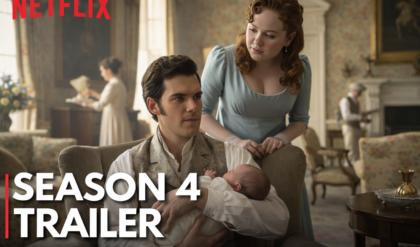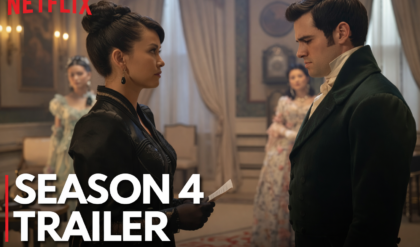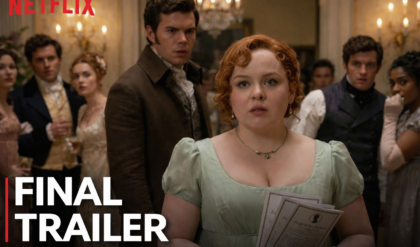Since its explosive premiere on March 13, 2025, Netflix’s Adolescence has transcended television, morphing into a cultural juggernaut that’s got the world talking. The four-episode British crime thriller, co-created by Jack Thorne and Stephen Graham, has shattered records with 66.3 million views in its first two weeks, becoming the UK’s most-watched streaming debut ever at 6.45 million premiere viewers. Shot in a gripping one-shot format, it follows 13-year-old Jamie Miller (Owen Cooper), accused of murdering his classmate, through the eyes of his parents Eddie (Graham) and Manda (Christine Tremarco). With a 98% Rotten Tomatoes score and a chokehold on Netflix charts in over 75 countries, the series has sparked a deafening buzz about youth violence, online radicalization, and societal failure. Now, its writer Jack Thorne is channeling that noise into a desperate plea: lawmakers must act fast to address the real-world horrors Adolescence lays bare. Here’s why this show’s conversation is too loud—and too urgent—to ignore.

A Global Conversation Explodes
Adolescence isn’t just a hit—it’s a wake-up call. Its raw depiction of Jamie’s descent—spurred by online misogyny and a classmate’s “incel” taunt—mirrors a chilling reality: the UK’s knife crime epidemic (18,500 offenses in 2023, per the Ministry of Justice) and the global spread of toxic ideologies via social media. The series topped charts with 42 million Week 2 views, earning praise from UK Prime Minister Keir Starmer, who watched with his teens and called it “essential viewing” on March 22, 2025. On X, fans and parents alike are buzzing: “This is our kids’ world now,” one wrote, while another pleaded, “Someone do something.” Posts demanding its use in schools have gone viral, with educators noting its power to spark talks on digital dangers.
The stats back the uproar. Knife crime in England and Wales has nearly doubled in a decade, per the Office for National Statistics, with 17.3% of offenders aged 10-17. Real cases—Elianne Andam’s 2023 murder, the 2024 Southport stabbings—echo Jamie’s story, making Adolescence a mirror too clear to dodge. Thorne, its driving force, isn’t letting that reflection fade.
Thorne’s Urgent Call to Action
On March 25, 2025, Thorne appeared on BBC Radio 4’s Today programme and didn’t mince words: “I want lawmakers to watch this and act fast. This isn’t just a story—it’s happening now, and it’s going to get worse.” The writer, known for tackling tough issues in His Dark Materials, sees Adolescence as a legislative battering ram. “It should be shown in Parliament, in schools,” he urged, pointing to the unchecked rise of online radicalization—think Andrew Tate’s “manosphere” influence—and a youth crisis spiraling out of control. “We’ve got teenage boys watching dangerous stuff,” he told The Guardian. “If we don’t intervene, we’re failing them.”
Thorne’s plea isn’t abstract. He’s pushing for concrete change: tighter social media regulations, better mental health support for teens, and education on digital literacy. “There’s a logic to incel culture that makes sense to isolated kids,” he explained to Channel 4 News, tying it to Jamie’s arc—rejected, radicalized, and violent by 13. Starmer’s already on board, vowing in January 2025 to tackle “loners and misfits” lured online, and Adolescence has lit a fire under that promise.
The British screenwriter and playwright Jack Thorne has written several TV dramas that he hoped would stir political debate. Until last week, they never quite took off.
Then, his new show, “Adolescence,” appeared on Netflix.
In the days since its March 13 release, the four-part drama about a 13-year-old boy who is suspected of killing a girl from his school after potentially being exposed to misogynist ideas online has become Netflix’s latest hit. According to the streamer, it was the most watched show on the platform in dozens of countries after it debuted, including the United States.
In Britain, the show has been more than a topic of workplace chatter. It has reignited discussion about whether the government should restrict children’s access to smartphones to stop them from accessing harmful content.
Newspapers here have published dozens of articles about “Adolescence,” which Thorne wrote with the actor Stephen Graham. A Times of London headline called it “The TV Drama That Every Parent Should Watch,” and campaigners for a phone ban in schools have reported a surge in support.
In Britain’s parliament, too, lawmakers have used the show to make political points. Last week Prime Minister Keir Starmer told the House of Commons that he was watching “Adolescence” with his two children, and said that action was needed to address the “fatal consequences” of young men and boys viewing harmful content online.
Image

In the show, Ashley Walters, center left, plays a police officer whose son has to instruct him on the meaning of emojis online.Credit…Netflix, via Associated Press
Thorne said in an interview that he was glad that the prime minister mentioned his show. Still, he added, he wanted British lawmakers to do more than talk about his drama: He wants them to pass a law that bans young people from accessing social media until they are 16.
“Adolescence” has appeared at a moment of growing global concern about the impact of smartphones on children’s health and social development. Last year, Australia barred children under 16 from social media (though the law includes many exemptions). In February, Denmark’s government announced it would soon ban smartphones in schools, something France has already implemented in primary and middle schools.
There seems to be no appetite for a similar law among Britain’s governing Labour Party. But there is a long history here of television shows that transform topics of social concern into the most urgent political issues of the day, going back to the 1960s, when the BBC broadcast gritty dramas like Ken Loach’s “Cathy Come Home.” That show shone a light on the plight of homeless people, a topic that was little discussed at the time.
More recently, after the 2024 broadcast of “Mr. Bates vs. the Post Office,” a drama about hundreds of real postal workers who were wrongly convicted of theft, Rishi Sunak, the prime minister at the time, quickly announced a law to exonerate them.
James Strong, the director of “Mr. Bates vs. the Post Office,” said that part of the reason “Adolescence” was stirring so much debate was that viewers could easily relate to the show, which centers on a normal, loving family.
It also tapped into a social concern that was “ready to explode,” Strong said.
Image

The show’s main character, Jamie, is arrested for the murder of a girl from his school at the beginning of the show.Credit…Netflix
Thorne said he began working on “Adolescence” about two-and-a-half years ago when Graham, the actor, contacted him to say he had been shocked by a series of murders in which boys had stabbed girls to death, and wanted to write a show that explored why those crimes had occurred.
Initially the pair struggled to work out a motivation for the show’s main character, Jamie Miller (Owen Cooper), until an assistant suggested the pair research the culture of incels, men who see themselves as involuntarily celibate and rail against women online.
Thorne said he bought a burner phone and set up new social media accounts on it, then spent six months “diving into very dark holes” of incel content online. It made him realize, he said, that the grim arithmetic of the incel worldview — the belief that 80 percent of women are attracted to just 20 percent of men, so boys must manipulate girls if they want to find sexual partners — could also seem “incredibly attractive” to many young men.
The research, Thorne said, also left him terrified that his son, age 8, would encounter such ideas when he gets a smartphone.
Daisy Greenwell, a founder of the organization Smartphone Free Childhood, said the show spoke to that “deep sense of panic” that many parents felt, but “the government is so far behind the public on this.”
Image

Erin Doherty, left, as Briony Ariston Cooper in Episode 3.Credit…Ben Blackall/Netflix
Supporters had been discussing moments from the show that made them cry in the organization’s WhatsApp group, Greenwell said, and many had singled out the series’s third episode, in which a psychologist, played by Erin Doherty, questions Jamie about his views on women. During the exchange, Jamie transforms from a sweet, innocent-seeming boy into a snarling, rage-filled teen, and Greenwell said that change had upset and scared many parents.
In an interview, Doherty said that the actors spent two weeks rehearsing the episode, which, like each part of “Adolescence,” is a single shot lasting about an hour. They then recorded 11 takes, she said, and the director chose the last one.
She could only hazard guesses about why the show was striking such a nerve, Doherty said, but added that some of the appeal could be that the show wasn’t didactic. Although many viewers were focusing on smartphone use as a trigger for the boy’s murderous actions, the show’s script had “the bravery to not give any answers,” she said.
And even though Thorne, the co-writer, has been calling for laws to limit smartphone use in news media interviews, he said his show never laid the blame solely on technology. In “Adolescence,” he said, the boy’s school is underfunded and teachers are too stressed and overworked to stop bullying, the police are ignorant of how teenagers talk to one another on social media and the boy’s friends and family were oblivious to what he was capable of.
There is an old saying that it takes a village to raise a child, but Thorne said it also “takes a village to destroy a child.” He added that he just wanted “Adolescence” “to persuade that village to help these kids.”
Why It’s Resonating
The show’s power lies in its intimacy. Graham, co-creator and Eddie’s portrayer, told Tudum, “We wanted a family you’d recognize—not broken, just normal.” That universality—paired with Owen Cooper’s haunting debut and a cast (Tremarco, Walters, Doherty) that bleeds truth—makes it hit home. The one-shot format, helmed by Philip Barantini, traps viewers in real-time terror, amplifying its urgency. “It’s like life—no cuts,” Tremarco said on Lorraine. Critics rave—Variety called it “unflinching”—but it’s the public’s roar that’s deafening.
X posts capture the frenzy: “This is a call to arms,” one user wrote. “Lawmakers need to see what’s at stake,” another demanded. Parents report kids opening up—“My son asked about Tate after,” one tweeted—while youth groups use it to deter violence, per a March 25 Guardian piece. Its 95% Popcornmeter score reflects a rare consensus: this matters.
Lawmakers Under Pressure
Thorne’s demand isn’t falling on deaf ears. Starmer, after watching with his family, linked it to his January push for online safety laws, telling Sky News, “We can’t ignore the fatal consequences of this content.” MPs have joined talks with Graham and Barantini, exploring Adolescence as a tool for policy—a first for a Netflix series. “It’s not just entertainment,” Thorne told the BBC. “It’s evidence.” The UK’s Online Safety Act, beefed up in 2023, faces calls for sharper teeth—fines for platforms hosting hate, age checks for toxic sites—spurred by the show’s spotlight.
Globally, the ripple grows. US educators on X push for screenings, citing parallels to incel-driven attacks like Toronto 2018. “This isn’t just a UK problem,” one wrote. Thorne’s vision—lawmakers acting “fast”—sees Adolescence as a catalyst, not a sermon.
The Creative Cost
This crusade came with scars. Thorne faced troll attacks—mocked for his glasses, labeled “woke”—after discussing incel culture on TV. “It’s been vicious,” he told The Independent, yet he’s undeterred. The one-shot grind left Cooper “exhausted” and Graham “relentless,” per Tudum, but the team’s resolve holds. “If it saves one kid,” Graham said, “it’s worth it.” That hope fuels Thorne’s fight—every view (24.3 million in four days, per The Sun) is a step toward change.
Could It Shape a Sequel?
Fans clamor for Season 2—“There’s more to say,” one X post insists—but Thorne’s focus is policy, not plot. His “Jamie’s story is finished” stance on This Morning suggests a standalone, though Netflix’s anthology history (Beef, Monster) tempts speculation. Barantini’s “moment in time” take aligns with Thorne, but 66.3 million views might sway the streamer. For now, Thorne’s eyes are on Westminster, not a writers’ room.
The Stakes Are High
Adolescence has people talking because it’s too real—knife stats, Tate’s shadow, a boy next door turned killer. Thorne’s plea turns that chatter into a demand: act now, or lose more Jamies. Streaming on Netflix as of March 26, 2025, it’s a four-episode titan that’s already history—UK ratings king, global alarm. Lawmakers are listening; parents are shaken; kids are watching. “It’s not about blame,” Thorne told Rolling Stone UK. “It’s about saving them.” With the world abuzz, this isn’t just TV—it’s a movement, and Thorne’s making sure it hits where it hurts most.





